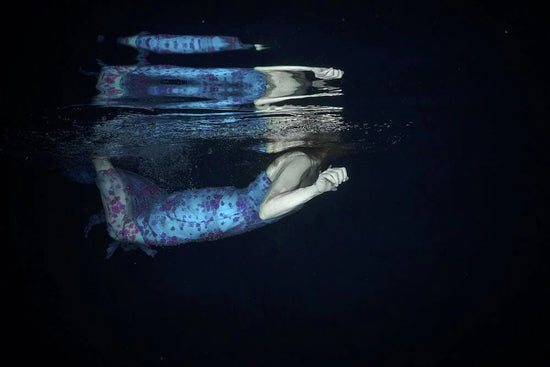
Poems about Anxiety
Poetry on anxiety: discover stirring poets and poems illuminating the human condition
Welcome to our blog post exploring the profound impact of poetry when capturing the essence of anxiety. Poems about anxiety possess a unique ability to convey the depths of human emotions and experiences with remarkable clarity. Through carefully chosen words, vivid imagery, and heartfelt expressions, these deep poems about anxiety offer solace, validation, and a sense of connection to those who have grappled with disquiet, doubt, and dread.
In this article, we will share our favorite poems about anxiety that provide a cathartic outlet for the turbulent inner world: fostering empathy and understanding among readers who may have faced similar challenges. Join us on this literary journey as we unravel the transformative power of poetry in illuminating the complexities of anxiety and offering a beacon of hope.
If you connected with these poems on anxiety, you might also find comfort in our collection of sad poems about depression that capture the depths of sorrow and resilience.
"Poems about anxiety: where words become lifelines, verses breathe solace, and the power of ink navigates the labyrinth of our restless souls."

Best Poems About Anxiety That Capture the Struggle
"I am too alone in the world, and not alone enough" by Rainer Maria Rilke
I am too alone in the world, and not alone enough
to make every minute holy.
I am too tiny in this world, and not tiny enough
just to lie before you like a thing,
shrewd and secretive.
I want my own will, and I want simply to be with my will,
as it goes toward action,
and in the silent, sometimes hardly moving times
when something is coming near,
I want to be with those who know secret things
or else alone.
I want to be a mirror for your whole body,
and I never want to be blind, or to be too old
to hold up your heavy and swaying picture.
I want to unfold.
I don’t want to stay folded anywhere,
because where I am folded, there I am a lie.
And I want my grasp of things
true before you. I want to describe myself
like a painting that I looked at
closely for a long time,
like a saying that I finally understood,
like the pitcher I use every day,
like the face of my mother,
like a ship
that took me safely
through the wildest storm of all.
"A Narrow Fellow in the Grass" by Emily Dickinson
A narrow Fellow in the Grass
Occasionally rides -
You may have met him? Did you not
His notice instant is -
"Acquainted with the Night" by Robert Frost
I have been one acquainted with the night.
I have walked out in rain—and back in rain.
I have outwalked the furthest city light.
I have looked down the saddest city lane.
I have passed by the watchman on his beat
And dropped my eyes, unwilling to explain.
I have stood still and stopped the sound of feet
When far away an interrupted cry
Came over houses from another street,
But not to call me back or say good-bye;
And further still at an unearthly height,
One luminary clock against the sky
Proclaimed the time was neither wrong nor right.
I have been one acquainted with the night.
This poem is in the public domain.
"The Hollow Men" by T.S. Eliot
We are the hollow men
We are the stuffed men
Leaning together
Headpiece filled with straw. Alas!
Our dried voices, when
We whisper together
Are quiet and meaningless
As wind in dry grass
Or rats' feet over broken glass
In our dry cellar
Shape without form, shade without colour,
Paralysed force, gesture without motion;
Those who have crossed
With direct eyes, to death's other Kingdom
Remember us-if at all-not as lost
Violent souls, but only
As the hollow men
The stuffed men.
This poem is in the public domain.
"Mad Girl's Love Song" by Sylvia Plath
I shut my eyes and all the world drops dead;
I lift my lids and all is born again.
(I think I made you up inside my head.)
The stars go waltzing out in blue and red,
And arbitrary blackness gallops in:
I shut my eyes and all the world drops dead.
"Mental Traveler" by William Blake
I travelled through a land of men,
A land of men and women too,
And heard and saw such dreadful things
As cold earth wanderers never knew.
This poem is in the public domain. Read more:
"Untroubling, And Untroubled Where I Lie, The Grass Below -- Above The Vaulted Sky"" by John Clare
I am! yet what I am none cares or knows,
My friends forsake me like a memory lost;
I am the self-consumer of my woes,
They rise and vanish in oblivious host,
Like shades in love and death’s oblivion lost;
And yet I am! and live with shadows tost
Into the nothingness of scorn and noise,
Into the living sea of waking dreams,
Where there is neither sense of life nor joys,
But the vast shipwreck of my life’s esteems;
And e’en the dearest—that I loved the best—
Are strange—nay, rather stranger than the rest.
I long for scenes where man has never trod;
A place where woman never smil’d or wept;
There to abide with my creator, God,
And sleep as I in childhood sweetly slept:
Untroubling and untroubled where I lie;
The grass below—above the vaulted sky.
This poem is in the public domain
"Do Not Go Gentle into That Good Night" by Dylan Thomas
Do not go gentle into that good night,
Old age should burn and rave at close of day;
Rage, rage against the dying of the light.
Though wise men at their end know dark is right,
Because their words had forked no lightning they
Do not go gentle into that good night.
"The Love Song of J. Alfred Prufrock" by T.S. Eliot
Let us go then, you and I,
When the evening is spread out against the sky
Like a patient etherized upon a table;
Let us go, through certain half-deserted streets,
The muttering retreats
Of restless nights in one-night cheap hotels
And sawdust restaurants with oyster-shells:
Streets that follow like a tedious argument
Of insidious intent
To lead you to an overwhelming question ...
Oh, do not ask, “What is it?”
Let us go and make our visit.
This poem is in the public domain: read more.
"The Raven" by Edgar Allan Poe
Once upon a midnight dreary, while I pondered, weak and weary,
Over many a quaint and curious volume of forgotten lore—
While I nodded, nearly napping, suddenly there came a tapping,
As of some one gently rapping, rapping at my chamber door.
“’Tis some visitor,” I muttered, “tapping at my chamber door—
Only this and nothing more.”
This poem is in the public domain: read more.
"High Windows" by Philip Larkin
When I see a couple of kids
And guess he’s fucking her and she’s
Taking pills or wearing a diaphragm,
I know this is paradise
Read more.
"The Waste Land" by T.S. Eliot
April is the cruellest month, breeding
Lilacs out of the dead land, mixing
Memory and desire, stirring
Dull roots with spring rain.
Winter kept us warm, covering
Earth in forgetful snow, feeding
A little life with dried tubers.
Summer surprised us, coming over the Starnbergersee
With a shower of rain; we stopped in the colonnade,
And went on in sunlight, into the Hofgarten,
And drank coffee, and talked for an hour.
This poem is in the public domain: read more
"The Second Coming" by W.B. Yeats
Turning and turning in the widening gyre
The falcon cannot hear the falconer;
Things fall apart; the centre cannot hold;
Mere anarchy is loosed upon the world,
The blood-dimmed tide is loosed, and everywhere
The ceremony of innocence is drowned;
The best lack all conviction, while the worst
Are full of passionate intensity.
Surely some revelation is at hand;
Surely the Second Coming is at hand.
The Second Coming! Hardly are those words out
When a vast image out of Spiritus Mundi
Troubles my sight: somewhere in sands of the desert
A shape with lion body and the head of a man,
A gaze blank and pitiless as the sun,
Is moving its slow thighs, while all about it
Reel shadows of the indignant desert birds.
The darkness drops again; but now I know
That twenty centuries of stony sleep
Were vexed to nightmare by a rocking cradle,
And what rough beast, its hour come round at last,
Slouches towards Bethlehem to be born?
This poem is in the public domain.
“To venture causes anxiety, but not to venture is to lose one's self.... And to venture in the highest is precisely to be conscious of one's self.”
"Ariel" by Sylvia Plath
Stasis in darkness.
Then the substanceless blue
Pour of tor and distances.
"The Bridge" by Hart Crane
How many dawns, chill from his rippling rest
The seagull’s wings shall dip and pivot him,
Shedding white rings of tumult, building high
Over the chained bay waters Liberty—
Then, with inviolate curve, forsake our eyes
As apparitional as sails that cross
Some page of figures to be filed away;
—Till elevators drop us from our day ...
"The Yellow Wallpaper" by Charlotte Perkins Gilman
It is very seldom that mere ordinary people like John and myself secure ancestral halls for the summer.
A colonial mansion, a hereditary estate, I would say a haunted house, and reach the height of romantic felicity—but that would be asking too much of fate!
Still I will proudly declare that there is something queer about it.
Else, why should it be let so cheaply? And why have stood so long untenanted?
John laughs at me, of course, but one expects that in marriage.
This poem is in the public domain: read more.
“Beauty and Bravery” by Nikita Gill
When I set out to find my father, I was not being brave.
I was acting out of fear or losing the only parent I ever had.
They may want you to believe I was simple being brave, but anxiety makes more heroes than history would care to repeat.
"The Age of Anxiety" by W.H. Auden
We would rather be ruined than changed
We would rather die in our dread
Than climb the cross of the moment
And let our illusions die.
"This Be The Verse" by Philip Larkin
They fuck you up, your mum and dad.
They may not mean to, but they do.
They fill you with the faults they had
And add some extra, just for you.
Listen to "This Be The Verse" by Philip Larkin
Transformative nature of poems on anxiety
The power of these poems about anxiety is transformative, reaching deep into the core of our being and instigating profound change. Through the raw emotions and vivid imagery woven into these verses, poetry has the ability to evoke empathy, understanding, and self-reflection. It acts as a comforting companion, validating our experiences and reminding us that we are not alone in our struggles.
By immersing ourselves in the world of poetic expression, we embark on a journey of self-discovery and growth, finding solace and strength amidst the chaos. Poems about anxiety empower us to confront our fears, challenge societal norms, and embrace vulnerability. As we immerse ourselves in these verses, we open ourselves to new perspectives, heal emotional wounds, and pave the way for personal transformation. So, let us embrace the beauty and power of poems about anxiety, for they have the potential to touch our souls and illuminate the path towards healing and resilience.
If poetry helps you feel seen, you're not alone. Explore how to be inclusive in ways that support those living with anxiety, depression, or neurodivergence.
Looking for more heartfelt poetry? Read our collection of sad poems about depression that offer solace and understanding.
Read More










